|
I love a good online personality test. I often sit for far too long, devoting careful consideration to each and every question. Which statement best describes you? A: I work best in a neat and tidy space. B: My desk is often messy or cluttered. I can answer questions like this all day. My favorite part is the payoff at the end, where some computer algorithm spits out a veritable novel about who I am and how my mind operates. Some of these tests are nonsense, of course. And I don't know about you, but my answers to the questions of even the most research-based quiz will change based on whether I'm at home or at work, well-rested or under-caffeinated, how crazy my kids are being that day, and a whole host of other factors. But I love them, all the same. The first time I took an online personality test, nearly 20 years ago, I was entranced. My then-boyfriend (and now-husband) found the quiz, asked me all the questions, and then read out a four-page summary of the inner-workings of my mind. "Oh, this describes you exactly," he said, pointing at one heading: Rule-follower. I hadn't thought about it before, but reading the description I saw myself clear as if looking in a mirror. Apparently I believe in a sense of order and authority, and I expect everyone else to respect that authority, as well. Also, I get very angry when they don't. "Oh, yeah," I said. "That is me." Maybe life has gotten more complex since then, or maybe my Gemini traits have begun peeking through more (because, of course, I identify with my astrological sign, too; there's no shortage of quizzes for that). Or maybe, like other online quizzes, the answers are situational and subject to change over time. Because, as I sit here today, I can tell you one thing with certainty: I am most certainly not a rule-follower. Not always. Certain rules, I will follow to the letter with unrivaled righteous indignation. I stand where I'm supposed to be in line. I keep my distance from others as necessary. I put my signal on when I'm turning in my car. I respond to emails from my team by the deadline. I pay my bills on time. But I'm also happy to use the "wrong" bathroom when it's empty and the line to the other one is out the door and I have to pee so bad I'm about to explode from all the coffee or beer or lemonade slushies. When the streets are deserted, I don't always come to a complete stop at intersections. I remember one time when I was a kid, we had some soda left over from a party. It was flat and useless, and my mother asked me to dump it in the basement bathroom. "In the toilet," she said. "Not the sink." I didn't ask why, and she didn't offer a reason. So I just went ahead and dumped the soda into the sink. Days later, my mother emerged from the downstairs bathroom after a battle with the colony of ants that had taken up residence in the sink. "Did you pour the soda out in the toilet like I asked?" she said. Oops. I always think about baking when I think about my resistance to rules. I’ve always delighted in making tasty cookies, cakes and muffins for myself and my family. From the earliest age, I would set out all the ingredients, eyeball them (who needs actual measuring devices?), throw them all together, and toss them in an oven I hadn’t bothered to preheat. Unsurprisingly, nothing ever came out quite as it was supposed to.
And then, one day, I watched a show that I’ll never forget. It was an episode of Good Eats on the Food Network, one where Alton Brown shows how to make perfect pancakes. During the episode, he shows how to create a shelf-stable dry mix to have on hand for whenever you want pancakes. He also explains why wet and dry ingredients need to be mixed separately [spoiler: it’s because baking powder is double-action and begins bubbling (rising) when it touches liquid; it further rises when heated], why fat + fat and lean + lean is important, and why preheating is an essential step to making the perfect batch of pancakes.
That day I realized something I hadn’t been able to put my finger on for my entire life, the pattern to my apparent whimsy relating to rules. And here it is: I follow rules that make sense to me. If I don’t see a reason to follow a rule, or if I don’t understand it, I give myself a bit of...shall we say, flexibility. How unexpectedly enlightening. If I'd known Mom had been attempting to guard against a visit from unwelcome houseguests, I would have followed her instructions, no problem. But until I saw the rationale, I reasoned that one drain was just as good as another. And, yes - I should have listened because my mother told me to do it in a certain way. But, as we learned last week, I am a concrete thinker. My brain always works better when it understands the why. Sure, you preheat the griddle because Alton Brown says to. But you also preheat the griddle because it helps the pancake cook evenly and keeps it from sticking. I now make pancakes so frequently that I have the recipe and technique memorized. And it's been years since I had to waste a single one. It's amazing what you can learn about yourself from a single sentence uttered by someone you've never met before. My Alton-Brown-inspired epiphany begs the question, which comes up in The Other Women as well: What is the subtext behind the rules by which we live? Should we just accept society's rules with the assumption that, like my mother's instructions, there's good and well-thought-out reasoning behind them? Are there rules we disagree with, that we would be more likely to follow if the rationale were transparent? And conversely, are we obligated to follow rules that make sense on the surface, but which are rooted in a history that goes against our morals or values? I'm thinking it's a little of each, but I'd love to know what you think. See you in the comments.
0 Comments
I've never been good at poetry.
I know, I know. I write poetry. I have notebooks full of it from back in high school. In college I wrote some painfully heartsick poems. Even today, I dabble from time to time. But just because I write it, as a way to work out my creative muscles, doesn't mean I'm any good at it. And, as mediocre as my poetry writing is, my ability to read someone else's is a million times worse. Sometimes, I will come across a beautiful poem, and know it's beautiful, and know why. Meg Elison's Modern Promethea, for example, is one I immediately connected with. My supremely talented friend, Barbara, shared a poem with me recently that just made me smile and tear up all at the same time. But far more frequently, I get a few lines in and my eyes glaze over. My friend Steven is an amazing poet. And I ... well, sometimes I just can't read his work. I either don't understand, or I have to read the same line fifteen times to try and figure out what it means, and then I need to read the line before and the one after to try and figure out how they connect to each other, and go back to the beginning and read the whole thing again to try and see the bigger picture. It's not because he's a bad poet. He's a brilliant poet. It's because I'm a bad poetry-reader. I feel bad even saying it, because isn't poetry supposed to be so beautiful and artful? As a writer, am I not supposed to understand and appreciate writing in its many forms? I devour literature of all types, all the time. Why is poetry so hard? A while ago, I started giving poetry a try again. There's a truckload of it around. Instagram poets, poets on Medium.com, writer friends of mine with their haikus and chapbooks. Seeing it all over the place made it easier for me to bite off small chunks, and I started thinking in stanzas when I noticed especially beautiful or depressing things. So, of course, I wrote my own poem. I asked my friend, Jun, for advice. At the time, Jun was writing a poem a day, and she gave me the most useful piece of advice I've ever heard regarding poetry. "It's all about blended metaphors," she said. That's when it occurred to me why poetry is so difficult for me to understand. The same reason I didn't know what a pun was until I was 30. The same reason that, when someone tells me they got a thousand birthday cards in the mail, I visualize their mailbox overflowing with the cards that surely wouldn't fit inside. I have a very literal, concrete mind. Numbers were always my thing. Math, even when it got more abstract, still only had one answer (or a set of answers that could be derived by applying a mathematical rule). Interpretation and figurative language is not my thing. A lot of poetry is just too abstract for me. The idea that there could be more than one interpretation to piece of writing made me very uncomfortable. I want to know exactly what the author was thinking when she wrote it. Even with music, which I have loved since I can remember, I will take the most literal interpretation as fact without ever questioning other possibilities. Jun's advice made me realize that I had used some metaphors unintentionally in my first attempt at poetry. I also became aware of metaphor use in my future writing - poetry and otherwise. I realized when I was mixing metaphors, and started looking for ways to weave the same metaphor through a piece - subtly, without overdoing it. Soon, just by being made aware of this use of figurative language, I found poetry easier to read (though still not easy) and began planning my poetry around a metaphor rather than just writing pretty words that seemed to go together. There's more to it than that, obviously - all kinds of literary devices are at work in good poetry, and I need more practice to hone my skills. Even with this newfound knowledge, my poetry remains pretty concrete. It's nearly always clear to the reader what I'm talking about and what I was thinking and feeling as I wrote it. But actively working on specific things like metaphor has tested my creativity and made me a better writer. How do you feel about reading poetry? Do you prefer to read poetry that's more concrete or more figurative? Do you have a favorite poem? I'd love to know - just comment below to share! A few weeks ago, I told you about a cache of writing I found from middle and high school. Mostly it was poetry, but there were a few stories in there. I called them short stories, but since not a single one of them was finished (some things never change), I can't be sure what my intent was when I began them.
I only ever remember wanting to write books. Sure, I wrote the poetry as an outlet for my teenage angst, but I also wrote chapter upon chapter of young adult suspense stories, imagining myself to be the next Christopher Pike. In my mind, fiction equaled novels. When I started writing the stories that are beginning to see the light of day, I intended for them to become books. There was no other option in my mind. But there's one problem with that. Writing a book takes forever. Even if you write full-time and can churn a book out in a month or two, writing a novel isn't just churning out the words. It's revising them, editing them, proofreading them, working with an agent to sell the book, working with a publisher through another million rounds of edits, designing a cover, and I'm sure I'm forgetting some steps in between. (And most of these still apply if you're self-publishing your book.) And then there's marketing the book. Which, according to conventional wisdom, is supposed to start before you've even finished with that crappy first draft I talked about before. And herein lies the dilemma. How's an author to market a book that's not finished yet? And even after the book is finished, but before it's released (which also takes forever), how's the author supposed to generate buzz about the book, if all she's got to share is the book, and she can't share the book?! One way to do it is to release deleted scenes - which for The Other Women are fortunately plentiful since I wrote like two-and-a-half novels to chisel out what ended up being the final product - and other fun teasers. But another way is to write and share other fiction. Now, I know I said writing a book takes forever, but as I was reminded when I started on this journey, books are not the only form of fiction. Of course, we all know that, but for some reason my stubborn mind just wouldn't let me see it until I started needing to find shorter ways to share my work with readers that didn't take three-plus years in creation. Though I've always gravitated toward novel- and series-length fiction, I have read some short stories. What I'd never heard of, though, was a category of fiction called flash fiction. Flash fiction can be one word, six words, 280 characters, a hundred or a thousand words. The line between short stories and flash fiction can get a little blurry up in those higher word counts, but anything that's very short but still has plot and character development is flash fiction. I don't consider myself creative enough to write a one- or six-word story that still has plot and character development. I have seen people do it, and I am humbled and impressed every single time. I just am not at a place in my craft where I can do it myself. I have, however, sat down to write a few pieces of short fiction and flash fiction. It's actually a fun and useful exercise to take a story idea and collapse and expand it into the different forms. It's a good way to showcase my work without giving away the entire novel, and it sure is more efficient than writing an entire 85,000-word book. From time to time here, I'll be sharing some shorter fiction that stands alone. I'm opening up my Short Stories page this week with the first short story I wrote when I began writing full-time. It's called I Will Follow You, and I hope you love it as much as I do. (You might want to grab a hanky, though.) Do be sure to join the exclusive reading club, so you can get a behind-the-scenes look at this story delivered right to your inbox. For the last few week's I've done a deep dive into the reproductive evolution, both real and speculative, that brings about the world of The Other Women. This week, I'm going to share with you a deleted scene that may or may not make it into the prequel, but which for now is just sitting on my computer waiting to see the light of day. Until today, that is! Take a read. Let me know what you think in the comments. Join the exclusive reading club to get more things like this. Enjoy! “Can I ask you a question?” whispers Ruma.
She stands with Evie in the dark nursery, looking into the womb through a small window at the tiny being that in just a few short months will become Evie’s son. She's here to learn, as much as she is to visit with her friend. Ruma has seen plenty of incubating babies, but she watches this one with a new perspective. She peeks in on him almost daily, reviewing the information she’s compiled from the archive about the interaction that would be occurring between a baby’s body and its mother’s. Though it will be decades before she needs to put this knowledge into practice, it's her responsibility to know all there is to know about pregnancy and childbirth. By the time the Daughters are ready, they need to be prepared. Evie raises her eyebrow and watches Ruma out of her periphery. “Sure,” she says. “Why did you choose to have a boy?” Evie is quiet for a moment. Ruma has heard the overly-simplified answer to this question multiple times, in mixed company – Her partner really wanted a boy, and Evie decided she’d let him have his way, just this once. Chuckle. But Evie considers her every action to the smallest detail. A man's caprice can’t be the only reason a women’s rights advocate would choose to have a male child. Ruma wants to know the deeper reason. “It’s a complicated answer,” Evie says. “I think, after everything, you owe me more than ‘It’s complicated,’” says Ruma, masking her annoyance only thinly. Evie takes a deep breath and lets it out. “Okay, well, first, because, like it or not, men still hold a lot of power. By having a boy, who will grow up to be a man, I hope to help shift that dynamic in our favor.” “And you think one man will be able to make that much of a difference?” “I’m not the only one,” Evie murmurs, lips barely moving. Ruma turns to look at her, but Evie’s eyes remain fixed on her developing baby. It never occurred to Ruma other Mothers would make this same decision. Just when Ruma thinks the conversation is over, Evie speaks again. “I couldn’t bear to have a girl who would have to go through safeguarding, and…” she shakes her head, sighing once more. “We're just not ready yet. I just couldn’t take any chances.” Ruma nods slowly. At last, she understands. Evie can’t stomach the safeguarding procedure, but skipping it before the Garden Society is ready could jeopardize all their efforts. Better to have a boy, then, and raise him to be the advocate we need. “I should get home,” Ruma says after a few more minutes. “We’ll see you two at the rehearsal tomorrow?” For a moment, as she's watched the floating creature inside the womb, she forgot her nerves, but remembering tomorrow's dinner brings them rushing back. Only two more days until she and Josiah will be married. Evie nods. “Of course,” she says, smiling and reaching out for a hug. Ruma hesitates. Can she do this? “What is it?” asks Evie. Ruma’s long, black waves fall out of her face as she looks up at the ceiling. She swallows and wills her mouth to move as she looks back up at her closest friend. “I’ve never lied to him before,” she says. Evie pulls the taller woman close, and this time Ruma lets her. She pats the back of the taller woman’s head. “Don't worry,” she says into Ruma's hair. “Josiah will never know.” From "test-tube babies" to mechanical wombs, how will we know when medical technology has gone too far?
This question came up while researching for my novel, The Other Women. Generally, ideas for my writing come to me as "What-if" questions. I'll notice something out in the world, and I'll wonder about it. And if my wondering takes me far enough, I'll know I've got a story. For this particular book, the idea of mechanical wombs, or what I call nursery wombs in the book came up as the central idea. Here's an example of my thought-ramblings as I unraveled the idea: What if there were a way to keep tabs on a developing baby? It would have to be an implant of some sort. I wouldn't want that kind of implant. But, wait. What if it were possible to grow babies in artificial wombs, so you could watch life as it unfolds and be certain the process is going along flawlessly? Surely that's going to be a thing at some point. And what if they were so commonplace that you could have one right in your nursery at home? You could insert a cartridge with the perfect combination of your and your partner's DNA, and you could watch the miracle of life unfolding together. Man, that would alleviate a lot of complications - maternal death would be zero. Birth would be predictable. Everything would be monitor-able. So... what if these nursery wombs became the only way people ever had children? What if the government mandated it? And so began my journey - or, I should say, Lucinda's journey. And Ruma's, and Evie's, and all the other characters in the book. Torn between wanting to know what was going on inside my own body at every moment and wanting the ability to carry my own children, I created a world where that same tension existed in a different form. I began researching the advancements that have been made in reproductive technology, and then extending them beyond today on what I assumed (based on nothing whatsoever) would be a logical time frame. (Make sure you're a VIP so you can get this projected timeline delivered right to your inbox tomorrow!) And then, even as I researched and wrote the book, breakthroughs kept happening to support my premise: nursery wombs will be a thing. Probably sooner than we think. But where will be the line of propriety, of ethical use? What will be the nature-technology balance, especially if this kind of thing comes to be seen as superior to, or safer than, the way we do things nowadays? I promised last week I'd come back around to the question of why we would want or need mechanical wombs to begin with. I'm sure you can think of a reason or two, but I'll outline some here:
After they've been used successfully and proven safe, why wouldn't society want more of them? And in places where medicine is socialized, why wouldn't the government want things to be safer and more predictable? First, maybe there will be incentives for using the nursery wombs. But later, when most of the population is already using them, what would be the harm in mandating them? Who wouldn't want their child, their partner, or themselves to be safe and free of natural childbirth and all it entails? I could see it happening. How about you? |
Nicci KadilakI'm the boss around here.
Archives
January 2023
Categories
All
|

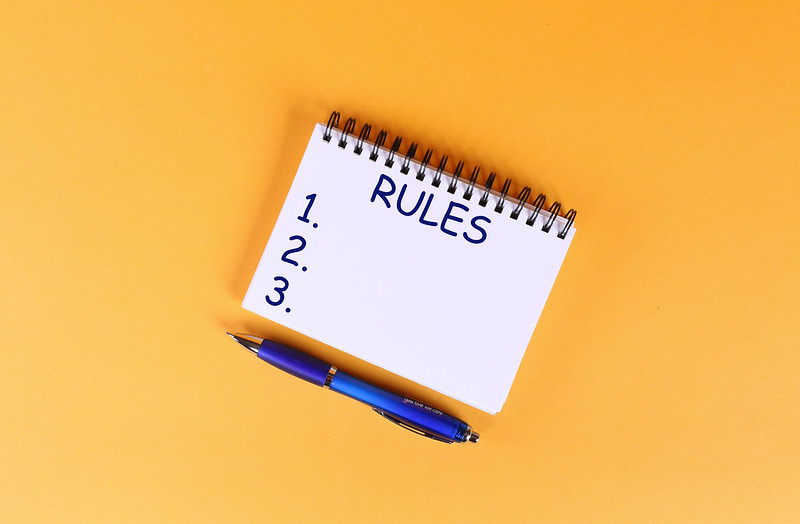
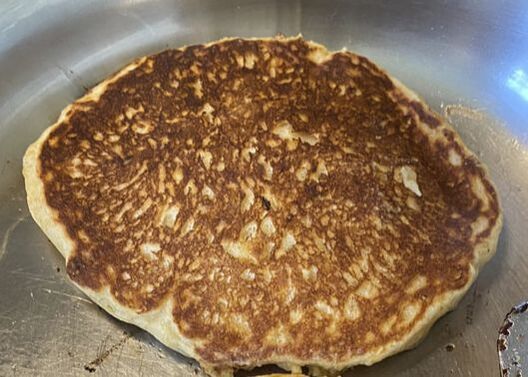
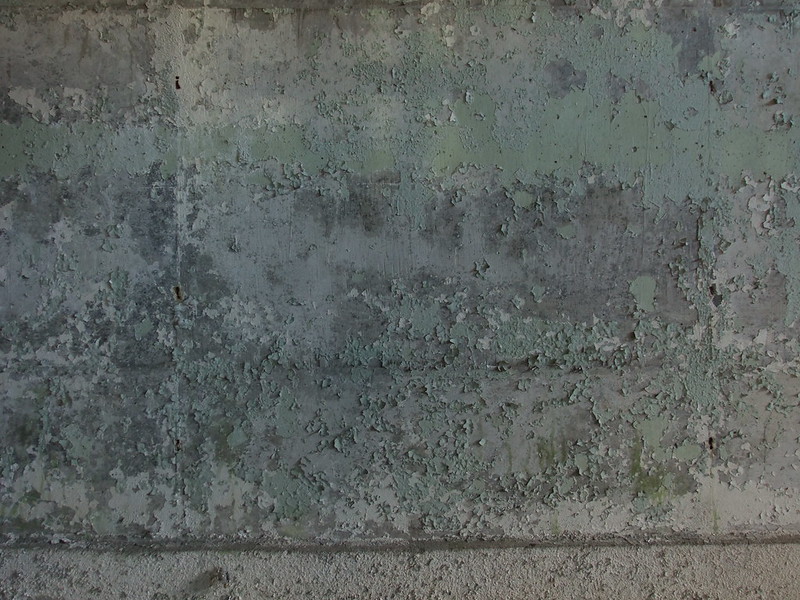
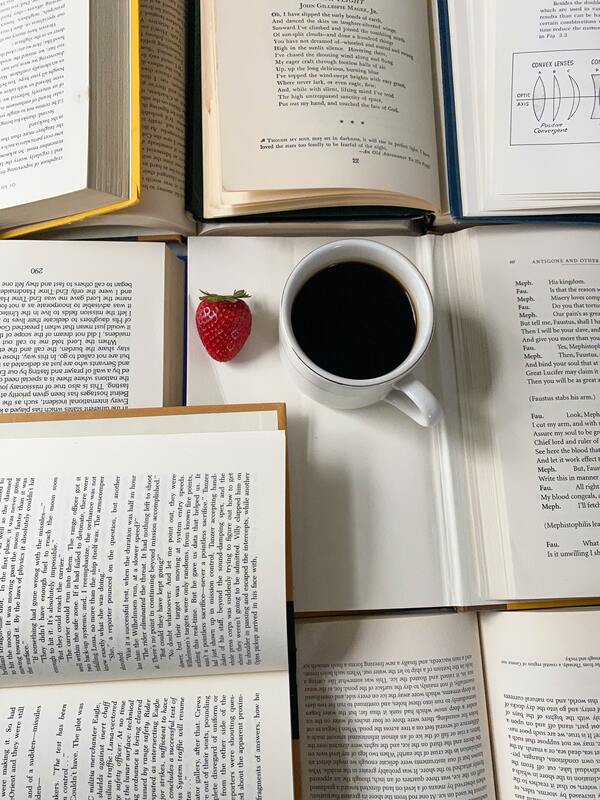
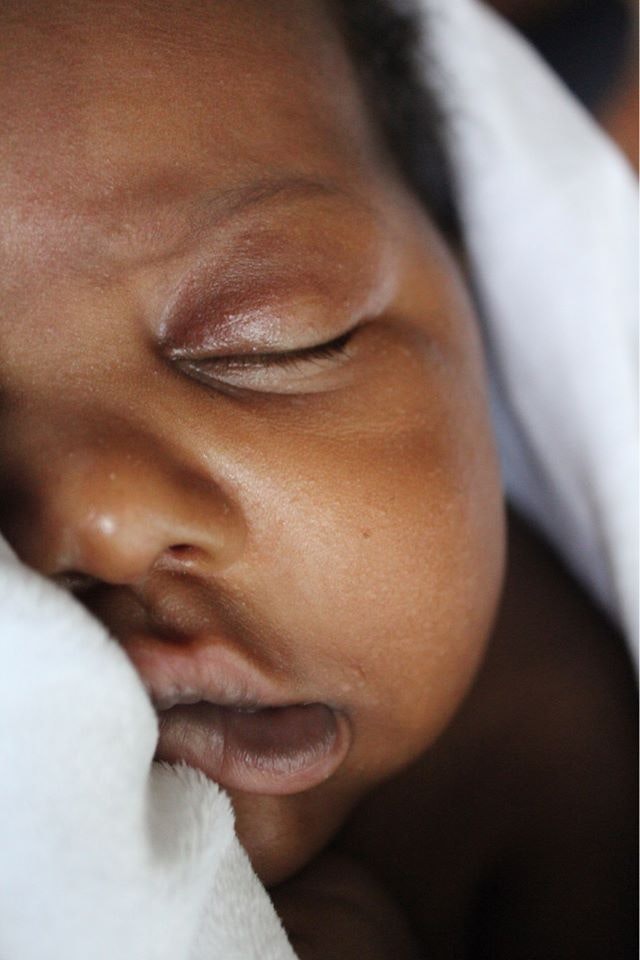

 RSS Feed
RSS Feed